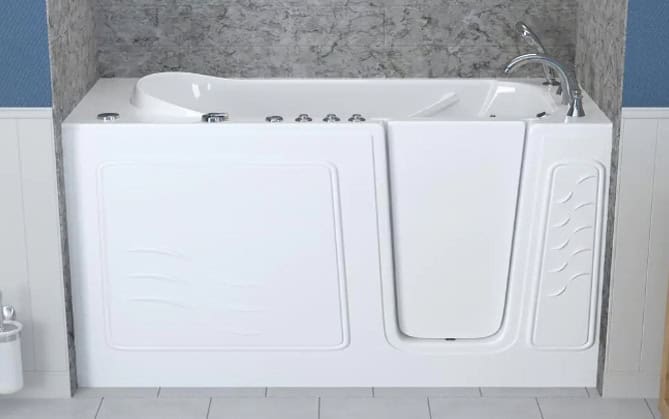Licensed vs. Unlicensed Contractors in Florida: Why It Matters
When planning a home or bathroom renovation in Florida—whether it’s a bathroom remodel, a kitchen update, or a full addition—hiring the right contractor is crucial. But one of the most important distinctions homeowners need to understand is the difference between licensed and unlicensed contractors. While an unlicensed contractor might offer a lower price, the potential legal, financial, and safety risks can far outweigh any upfront savings.
Here’s why choosing a licensed contractor in Florida isn’t just a smart move—it’s often a legal requirement.
What Is a Licensed Contractor?
In Florida, a licensed contractor is one who has met the educational, work experience, and testing requirements set by the Florida Department of Business and Professional Regulation (DBPR). You can verify a contractor’s license status through the DBPR’s online portal at myfloridalicense.com.
To maintain a license, contractors must also carry appropriate insurance, including general liability and workers’ compensation coverage, and they must stay up to date with Florida building codes and safety standards. According to the Florida Homeowners’ Construction Recovery Fund, licensed contractors also contribute to a fund that may help compensate consumers financially harmed by licensed contractors who fail to complete a job or meet contract obligations.
What Happens If You Hire an Unlicensed Contractor?
While unlicensed contractors might quote you a better price, the risks to your home and finances can be serious and long-lasting. Here are the top dangers:
1. Legal Consequences and Fines
Hiring an unlicensed contractor is illegal for many types of work in Florida. If caught, you and the contractor could both face penalties. According to Florida Statute 489.127, individuals performing unlicensed contracting can face misdemeanor or felony charges depending on prior offenses.
As a homeowner, you could also be subject to stop-work orders, fines, or even lawsuits if your project doesn’t comply with state regulations. You can find more details in the Florida Building Code.
2. No Insurance Protection
Licensed contractors are required to carry insurance that protects you from:
- Property damage caused during the project
- Injuries to workers on-site
If your unlicensed contractor doesn’t have workers’ compensation, you could be held liable for any accidents that happen on your property. This could lead to expensive medical bills or legal fees, and your homeowner’s insurance might deny coverage if you knowingly hired an unlicensed individual.
3. No Permits = No Protection
Most home renovation projects in Florida—including electrical, plumbing, roofing, and structural work—require permits from your local building department. Unlicensed contractors often skip this step, either to cut costs or because they’re not legally allowed to pull permits.
Unpermitted work can result in:
- Failed inspections
- Required demolition or rework
- Delays in selling your home due to unresolved permit issues
In many Florida counties, including Miami-Dade and Orange County, code violations and unpermitted work are public record, which can lower your property value and deter buyers. Visit Orange County Division of Building Safety to learn more about local permitting.
4. Warranty and Insurance Voids
If your contractor isn’t licensed, your homeowner’s insurance may not cover any damages or losses related to the work. Also, manufacturer warranties on products like flooring, tile, or fixtures may be voided if installation is performed by an unqualified or unlicensed installer.
This can leave you footing the bill for repairs down the road, even if the issue is due to poor workmanship or product failure tied to improper installation.
5. Poor Workmanship and No Recourse
Licensed contractors in Florida are held to professional standards and subject to disciplinary action if they violate them. You can file a complaint with the DBPR if something goes wrong by visiting myfloridalicense.com > File a Complaint.
Unlicensed contractors, on the other hand, aren’t regulated and you have very limited recourse if they perform shoddy work, disappear mid-project, or damage your property. Even if you win a lawsuit, recovering funds from an unlicensed contractor can be difficult or impossible.
How to Protect Yourself
If you’re planning to hire a contractor in Florida, here are steps to ensure you’re choosing someone trustworthy and qualified:
1. Verify Their License
Go to myfloridalicense.com, search their name or business, and confirm their license is active and appropriate for the work being done.
2. Ask for Insurance Documentation
Request a certificate of insurance and make sure it includes general liability and workers’ comp coverage. Call the insurance company if you’re unsure it’s valid.
3. Require a Written Contract
A solid contract should outline the scope of work, timeline, payment schedule, materials used, and who’s responsible for permits. Don’t proceed without one.
4. Never Pay in Full Up Front
Most legitimate contractors ask for a deposit (usually 10-30%) with progress payments due at key milestones. Avoid anyone who demands full payment before starting. Also, check that the contractor accepts standard forms of payment and provides receipts.
5. Use Local Resources for Research
Use the Better Business Bureau (BBB) to check company ratings and complaint history. You can also search for court records or complaints via the Clerk of Courts in your county.
Final Thoughts
In Florida, using a licensed contractor isn’t just about following the law—it’s about protecting your home, your family, and your financial future. While unlicensed contractors may tempt you with low bids, the potential costs of poor workmanship, insurance liability, and legal trouble are simply too high.
Always verify credentials, ask the right questions, and make sure you’re working with someone who’s accountable, qualified, and recognized by the state. Your home deserves nothing less. For more consumer protection tips, visit the Florida Attorney General’s Guide to Hiring Contractors.





